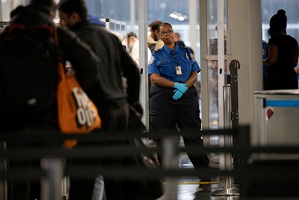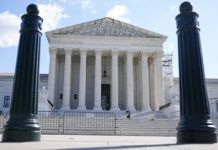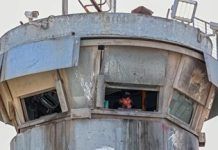A company that aims to offer travelers a quicker route through airport security is seeking approval to land at Chicago’s airports. It’s part of a partnership between United Airlines and Clear, which uses a fingerprint or iris scan to verify enrolled travelers’ identities at airport security checkpoints. Passengers still need to go through airport security screening, according to Clear. Chicago-based United said it was making an investment in Clear that would help the company expand, including plans to bring Clear to United’s Newark and Houston hubs later this summer.
Clear said it is interested in expanding to both Chicago airports. United said it is supporting the company’s effort to open at O’Hare “in the coming months.” Clear needs the City Council’s approval to set up dedicated lanes at O’Hare and Midway Airports, a spokesman for the city’s Department of Aviation, said in an email. An ordinance authorizing agreements between the city and Clear was introduced last week and could be approved in September at the earliest, but the Aviation Department is eager to see it move forward.
United also said it would give its top-tier frequent fliers free access to the service, with discounted memberships costing $109 or $119 per year for other frequent flier program members. Enrolling in Clear normally costs $179 per year. By early afternoon on a recent Monday, nearly 1,000 people had signed up for free or reduced memberships, said Michael Covey, United’s managing director of MileagePlus Programs. “We believe expedited screening is really important for our members,” Covey said. “We want to take some of the stress out of the experience.”
Delta Air Lines has a similar partnership and uses Clear to let members enter its Delta Sky Club lounges with a fingerprint check. Privacy advocates have raised concerns about the use of biometric data and the ability to keep it secure. Illinois law requires companies collecting information such as facial, fingerprint and iris scans first obtain consumers’ consent and provide details on how they’ll use the data and how long the records will be kept. Clear said Illinois’ regulations have not posed challenges to bringing its service to the state and it is committed to complying.








